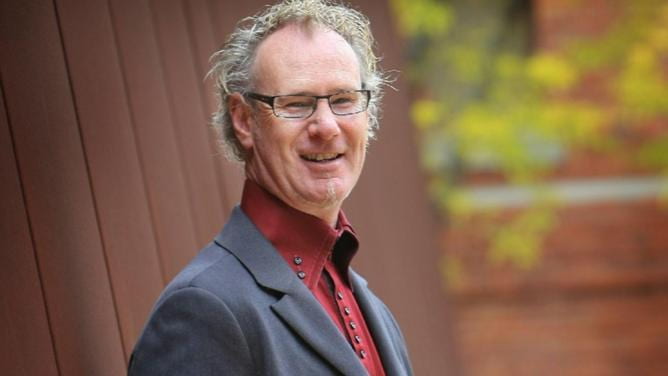Australia’s legal system is based on a number of principles of justice which work together to ensure equality and fairness and that the rights of people are upheld. These include having equality before the law, high quality of evidence, the right to appeal, and the right to silence. Equality before the law ensures that everyone is treated equally and fairly, no matter their race, gender, income or similar, and ensures that nobody is above the law, so that everyone is protected equally. Using high quality evidence ensures that the decisions and convictions made by the court are reliable and likely to be true, as well as ensuring that they are made due to factual proof rather than a personal opinion. The right to appeal allows people to, if unhappy with a verdict, appeal to have the verdict reviewed and possibly overruled by a higher court, on reasonable grounds. This can happen, for example, if someone believes some of the principles of justice have been undermined or court procedures not followed correctly. The right to silence allows people to remain silent and not answer questions (except for name and address) when being questioned by the police. This is important as, under pressure, people may not be able to answer properly, especially if, for example, they did not have legal advice on it, or they had communication issues. These principles are important because they ensure that everyone is equal in court and that rulings are fair and suitable, demonstrating the great importance of equality in Australia’s judicial system. However, at times, this is not the case, as will be shown through an investigation of the case of Andrew Mallard’s accused murder of Pamela Lawrence. In this case, jeweller Pamela Lawrence was killed with a strange weapon on May 23, 1994, and Andrew Mallard was unjustly accused, after being forced to confess statements by the police. In this case, the principles of justice were largely compromised.

The principle of high quality of evidence was violated in the Andrew Mallard case as false evidence was gained and used against Mallard. This principle ensures that decisions in court are made based off of reliable, high quality evidence to ensure that convictions are correct and are made based off of facts rather than biased personal opinions. When investigating the case, police quickly labelled Mallard as a prime suspect and proceeded to find and even create evidence to prove his guilt. A police officer had even gone undercover to speak to Mallard, and, after inviting him out, convinced him of some certain statements relating to murdering Pamela Lawrence, which he would be later forced to admit in an interview. Some of this ‘evidence’ included a drawing of a wrench as a murder weapon and the method he used to enter the shop where the murder took place. This false evidence they gained was treated as though true, and was used against him as ‘confessions’. The police also neglected vital information that would prove Mallard innocent, and hid it from the court. This included a test which had been done on a pig’s head which had shown that the apparent method of murder would not have killed Lawrence or caused the wounds seen on her. This research was not brought into court and was only found out later. This violation of the principle of having high quality evidence would have been avoided if all the evidence had been brought to the court, and if only reliable evidence was used. These, along with other incidents, violated the principle of having high quality of evidence as false ‘evidence’ was used against Mallard in order to convict him.


When Mallard was being questioned, the principles of the right to silence and equality before the law were compromised. The right to silence allows people, when being questioned by the police, to remain silent (except for giving name and address), as they may need legal advice first or may be disadvantaged (e.g. by language or mental capacity), and could incriminate themselves if forced to speak. Equality before the law ensures that all people are treated fairly and equally, with nobody above the law, without discrimination based on differences such as race, gender, culture and disability. In the Andrew Mallard case, he was interviewed when he was not mentally stable, and was at one point even in a psychiatric hospital. He was not given the opportunity to have a legal aid and he was not even able to have a nurse with him during the interview. This disadvantaged him, as he was mentally ill at the time, being in a manic stage of bipolar mood disorder and therefore may not have been able to make proper decisions or think properly. Mallard was also denied the right to silence- during his questioning, police fed him statements to ‘confess’, and threatened him to say what they asked, coercing him and threatening to shoot, beat and harass him. These factors caused him to have to ‘confess’ these false statements, as well as giving other information used against him, leading to his conviction. This would not have occurred if he had had a legal aid or other assistance, or if he had been allowed silence in the questioning, rather than being threatened by the police. These examples demonstrate that the principles of the right to silence and equality before the law were compromised in the Andrew Mallard case.

Another principle, the presumption of innocence, was also violated in the Andrew Mallard case. In the primary investigation of the case, Mallard was identified as one of the original 136 suspects. Shortly after, he was identified as a prime suspect after he was interviewed. This was partially because he had committed some crimes previously, although they were unrelated and were petty crimes. They therefore treated him as though he were guilty, rather than innocent, and tried to convict him based on this belief rather than properly looking at the evidence that turned out to prove his innocence. This led them to do things such as forcing him to confess to the crime, and presenting false evidence from this, as well as, in court, hiding evidence that clearly proved him innocent. This assumption of guilt caused him to be convicted, as, if he had been properly presumed innocent, and treated as so, it would be likely that the police would not have forced him to ‘confess’ and use this against him in order to easily convict him, and the evidence found to prove him innocent would have been immediately brought to court. As a result of this, it can be seen that the principle of the presumption of innocence was violated in the Andrew Mallard case.
The principles of justice are essential to the Australian legal system. These include the use of high quality evidence, the presumption of innocence, equality before the law and the right to silence, as well as many others. These principles ensure that everyone is equal in the legal system, and treated fairly, and to ensure that rulings are as reliable as possible. However, the failure of the legal system to support these principles can lead to people being wrongly convicted, as was the case for Andrew Mallard, in whose case the principles of justice were largely compromised.